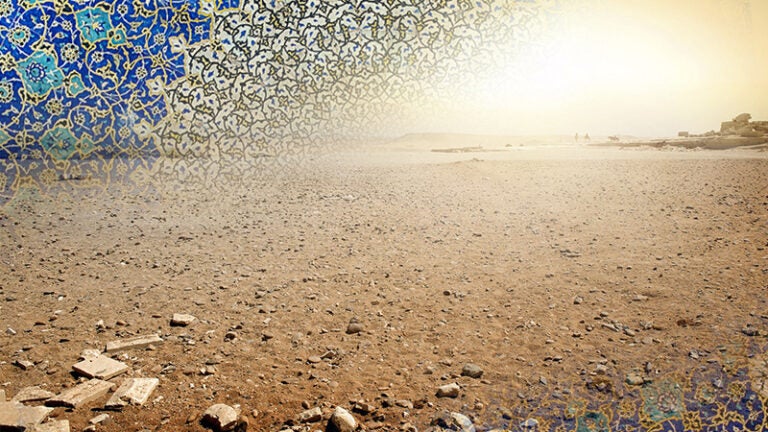
Middle East Studies department is first of its kind to focus on sustainability
A Tunisian street vendor self-immolates. Populations migrate to cities en masse. Protestors swarm streets in unexpected popular revolts calling for dignity, freedom and change. This was our sphere of reference during 2011’s “Arab Spring.”
Missing from most reports was discussion of environmental crises behind the unrest. Five-years of severe drought in the region drove thousands of farmers out of the countryside and into cities, leading to an inequitable distribution of resources.
Scholars, however, did take notice of these phenomena, recognizing the need for serious reappraisal of our assumptions about Middle Eastern societies. Perhaps none have made this commitment more clearly than the USC Dornsife Department of Middle East Studies, which is developing a new kind of expert in the field, one who possesses intimate knowledge of the area’s socio-environmental challenges.
As the first ever university department of its kind to focus specifically on the role of the environment on social change in the Middle East, it provides faculty and students with a distinctive framework through which they can explore more traditional topics such as politics, ethnicity and religion.
Laurie Brand, Robert Grandford Wright Professor and professor of international relations and Middle East Studies, points to Cairo as a case in which scholars might explore regional politics. Air pollution and congestion in the city incited the Egyptian government to build a new, yet-to-be-named administrative capital — starting from scratch. Approaching Egypt’s political system from this angle inspires connections with environmental issues such population density, infrastructure deterioration and globalization.
Department Chair Ramzi Rouighi, associate professor of Middle East studies and history, said the department’s approach is unique. “This sort of scholarship does exist out there, but it’s fragmented. Scholars who work on sustainability issues are studying the Middle East, but they are not part of a Middle East program.”
A Fertile Crescent for impact
Last year, the USC Dornsife Middle East Studies Program became a full-fledged department. As new kids on the block, faculty were interested in finding creative ways to distinguish the small department’s academic profile.
“When we looked at what USC Dornsife was doing and how we fit in, we saw that most departments have people looking at sustainability in one way or another,” said Brand. “We’re trying to tap into all of this expertise and existing strength.”
Rouighi adds that USC is in a privileged location to study the Middle East. Southern California’s rapid urban growth, dry climate and industrial output give rise to similar sustainability challenges.
While building around a focal issue rather than faculty specialization bucks the established trend for growing a university department, there is enthusiastic support for challenging the status quo.
“Dean Miller arrived with a very ambitious plan to free departments like ours to come up with innovative visions for the future,” said Rouighi. “We thought not only about how to separate our program from others that have been around for a very long time, but also what issues the next generation will have to grapple with.”
Rouighi says his colleagues at universities in the Middle East are excited about sending students to USC Dornsife. While many of these students can train in science or engineering fields that produce sustainable technology, there are few opportunities for them to develop the social science skills that help leaders and communities take action.
“These kinds of experts do not yet exist,” he said. “We have to develop them here — that’s our bet.”
Richard Bulliet, professor emeritus of Middle Eastern history at Columbia University and a renowned expert in the region’s environmental issues, delivered the 2018 Distinguished Farhang Lecture. He noted the value afforded by the department’s unique focus.
“To understand today’s challenges of sustainability, a program that looks at past climatic and ecological events and carries that vision forward to assess our present and projected dilemmas is sorely needed.”